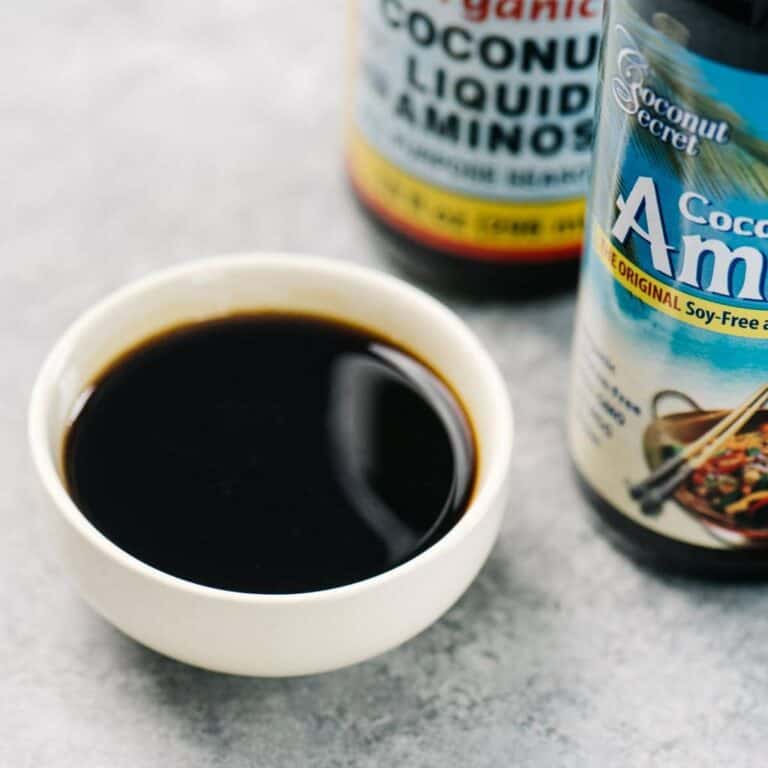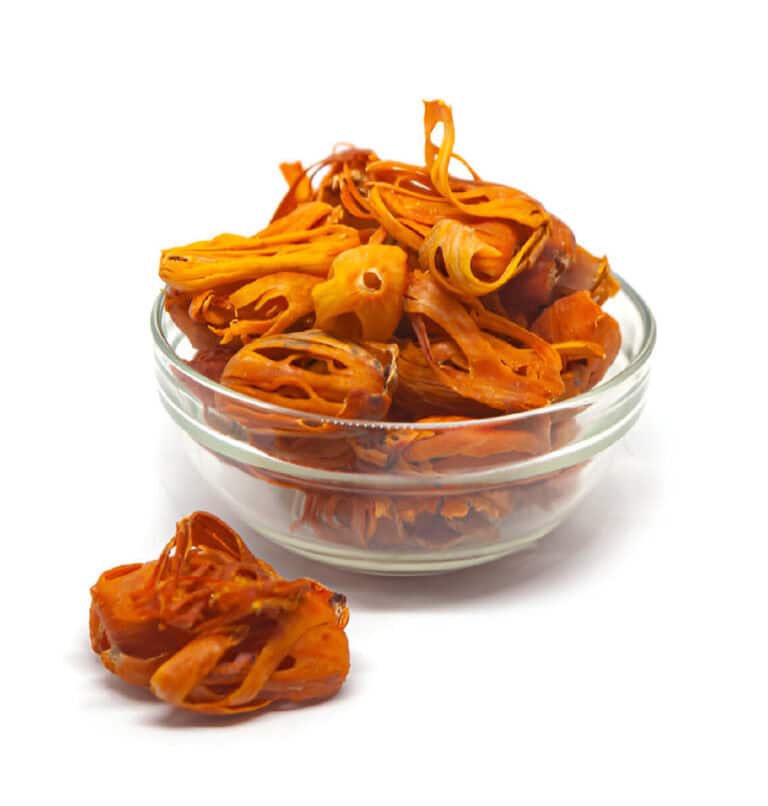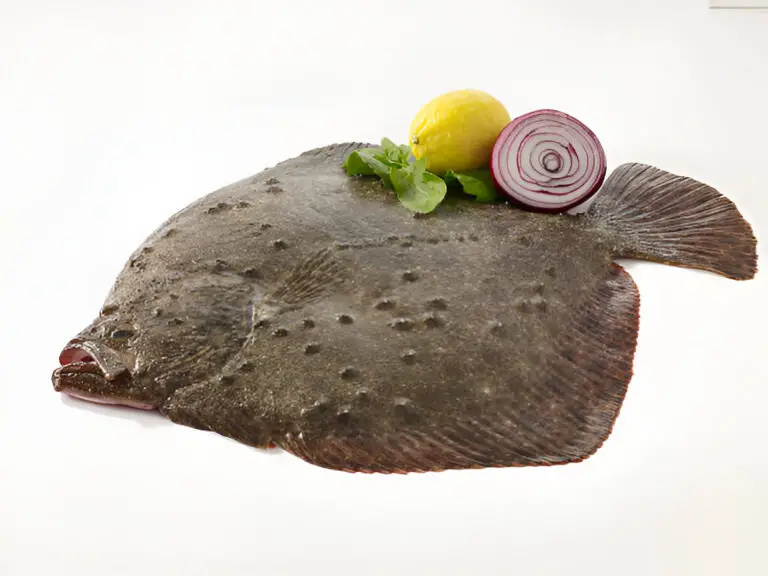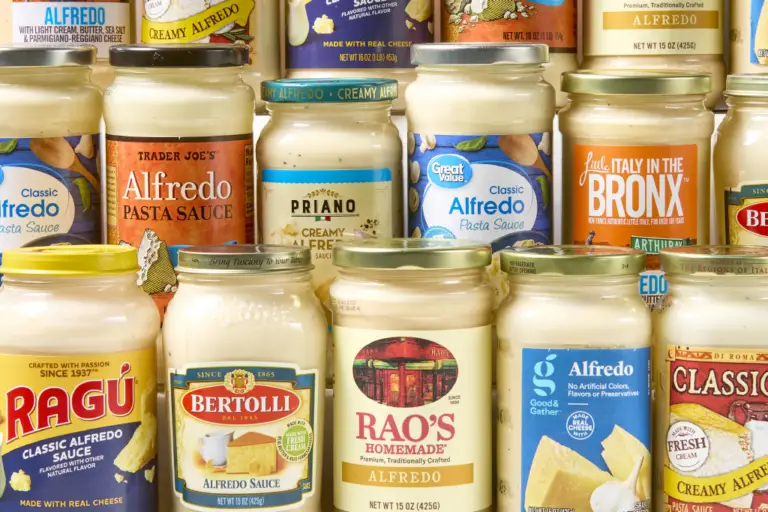Does Fish Sauce Contain Shrimp? Unveiling Its Secret Ingredient
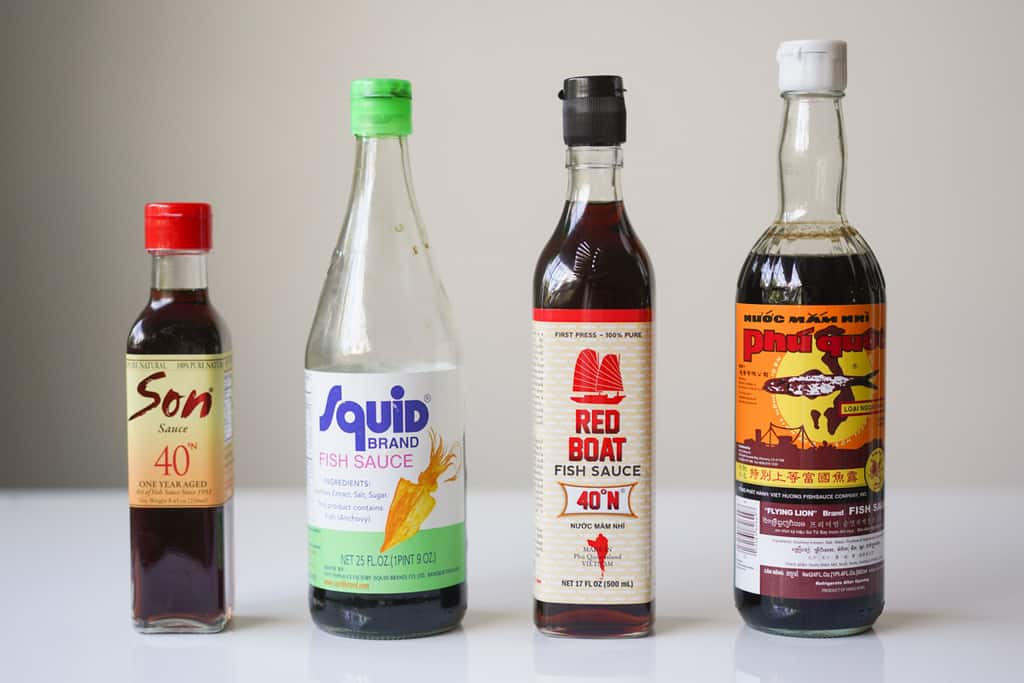
Are you a seafood lover with a curiosity that’s been simmering in your mind? Perhaps you’re a diligent label reader, meticulously checking ingredients for potential allergens. Well, prepare to have your questions answered and your taste buds tantalized as we embark on a flavorful journey through the world of fish sauce.
Southeast Asian cuisine loves fish sauce for its distinct aroma and complex flavor. But what about its secret ingredient? Does fish sauce contain shrimp, the treasure of the sea?
Join us as we peel back the layers of culinary intrigue, uncovering the truth behind this popular condiment. Get ready to dive deep into the mysteries of fish sauce, from its ancient origins to the production process that transforms humble fish into a savory elixir.
Let’s settle the debate and satisfy your craving for knowledge in this delicious exploration of fish sauce’s secret ingredient.
The History and Basics of Fish Sauce
Fish sauce, also known as nuoc mam (Vietnamese), nam pla (Thai), or patis (Filipino), is a popular condiment. Its origins can be traced back thousands of years, with evidence of its existence in ancient civilizations such as Rome and Greece.
Fish sauce is made from fermented fish or fish byproducts. The production process involves salting fish and allowing it to ferment for several months. The result is a rich, savory liquid.
Fish sauce is highly prized for its umami flavor, which adds depth and complexity to a wide variety of dishes. It’s commonly used as a seasoning in soups, stir-fries, marinades, and dipping sauces. The balance of saltiness, sweetness, and umami can enhance the taste of both meat and vegetarian dishes.
The Fermentation Process and Its Impact on the Final Product
The magic of fish sauce lies in the fermentation process. After salting the fish, they are left to ferment in large vats or barrels for several months to a year or more. During fermentation, naturally occurring enzymes and bacteria break down the proteins in the fish. It releases amino acids and promotes the development of complex flavors.
Over time, the fish undergoes a transformative process. The enzymes convert proteins into smaller compounds, including glutamic acid. This amino acid is responsible for the umami taste that characterizes fish sauce. The longer the fermentation period, the more intense and robust the flavor becomes.
Throughout the fermentation process, the fish gradually breaks down, releasing its essence into the liquid. The mixture is then strained and filtered to remove any solids, resulting in the smooth, amber-colored liquid we know as fish sauce.
Read: Is Fish Sauce Sour?
Does Fish Sauce Contain Shrimp?

Now, let’s address the burning question: Does fish sauce contain shrimp? The answer is yes and no.
Contrary to popular belief, fish sauce does not contain shrimp as a secret ingredient. The primary component responsible for its distinct taste is anchovies. These small, oily fish are abundant in the waters of Southeast Asia and provide the necessary flavor profile for fish sauce. Anchovies are rich in glutamic acid, an amino acid responsible for the umami taste.
Exploring the Use of Shrimp in Fish Sauce
As mentioned earlier, shrimp is not the secret ingredient of traditional fish sauce. But some varieties and regional flavors of fish sauce do incorporate shrimp as an additional flavoring. These shrimp-based fish sauces are known for their unique taste and are especially popular in certain areas.
Shrimp’s Contribution to the Flavor Profile
Shrimp adds complexity and depth to the flavor of fish sauce. Its distinct brininess and subtle sweetness create a different profile compared to fish-based fish sauces. The addition of shrimp enhances the umami experience, providing a nuanced taste that can elevate various dishes.
Shrimp-Based Fish Sauces vs. Fish-Based Fish Sauces
It’s important to note that the majority of commercially available fish sauces are made primarily from fish, particularly anchovies. Shrimp-based fish sauces are often labeled and marketed as such, distinguishing them from the more common fish-based fish sauces.
Therefore, if you are concerned about shrimp allergies or prefer to avoid shrimp, you can opt for fish-based fish sauces and read labels carefully to ensure there are no undisclosed ingredients or cross-contamination risks.
Is Fish Sauce Safe for Shrimp Allergy Sufferers?
If you have a shrimp allergy, you may be concerned about consuming fish sauce. The good news is that fish sauce is generally safe for people with shrimp allergies.
Although fish sauce is made from fish, the proteins that typically trigger shrimp allergies are not present in fish sauce in significant amounts. The fermentation process and prolonged aging break down the proteins, making them less allergenic.
WARNING
Take note that sensitivity to allergens can vary from person to person. If you have a severe shellfish allergy, it’s best to exercise caution. You need to consult with a healthcare professional before consuming fish sauce or any product containing fish derivatives.
Vegetarian and Vegan Considerations
For those following a vegetarian or vegan diet, the use of fish sauce can be a point of contention. Traditional fish sauce is not suitable for vegetarians or vegans, as it is made from fish. However, vegetarian and vegan versions of fish sauce are available on the market.
These alternative versions of fish sauce are made using plant-based ingredients to mimic the taste and aroma of traditional fish sauce. Some common substitutes include soy sauce, mushroom sauce, or a combination of various fermented vegetables. These alternatives can provide a similar umami flavor to dishes while catering to specific dietary preferences.
Substitutes for Shrimp-Based Fish Sauces

Alternative umami-rich sauces are available for those who avoid shrimp-based fish sauces due to allergies, diet, or ethics.
If you’re looking for a shrimp-free fish sauce substitute, several ingredients can be used to achieve comparable flavors. Some common substitutes include:
- Soy Sauce: Soy sauce is a versatile condiment with a savory and slightly sweet taste that can be used as a substitute for fish sauce in certain recipes. It is worth noting that soy sauce has a distinct flavor profile. So, adjustments in other seasonings may be necessary to maintain the desired taste balance.
- Mushroom Sauce: Mushroom-based sauces, such as mushroom soy sauce or mushroom-based umami sauces, can provide a rich and earthy flavor. This sauce resembles the umami notes of fish sauce.
- Fermented Vegetables: Fermented vegetables, such as fermented soybean paste or miso, can contribute depth and complexity to dishes, offering an alternative umami taste.
When choosing a substitute, consider the specific flavor profiles of the dish you’re preparing and experiment to find the best alternative that suits your taste preferences.
Understanding Labels and Ingredients
When purchasing fish sauce, it’s important to read the labels carefully. Look for ingredients listed on the bottle to ensure that they align with your dietary requirements.
Some brands may use shrimp or other shellfish as additional flavoring in fish sauce, so it’s crucial to be aware of potential cross-contamination or undisclosed ingredients.
If you have specific dietary restrictions or concerns, don’t hesitate to reach out to the manufacturer for clarification. They can provide detailed information about the ingredients and production process. You want to make an informed decision about the suitability of their product.
Summary
Fish sauce is a beloved condiment in Southeast Asian cuisines, renowned for its unique flavor and versatility. Despite its name and misconceptions, fish sauce does not contain shrimp as its secret ingredient. The true star of fish sauce is anchovies, which provide the distinctive umami taste that makes this condiment so prized.
For individuals with shrimp allergies, fish sauce is generally safe to consume. Fermentation and aging reduce shrimp allergenicity by breaking down proteins that cause allergies. However, if you have a severe shellfish allergy, it’s best to exercise caution and consult with a healthcare professional before incorporating fish sauce into your diet.
Vegetarians and vegans often face challenges when it comes to fish sauce due to its fish-based nature. Fortunately, there are vegetarian and vegan versions of fish sauce available on the market. These alternatives use plant-based ingredients to replicate the taste and aroma of traditional fish sauce. Soy sauce, mushroom sauce, and fermented vegetables are common substitutes that can provide a similar umami flavor.
When purchasing fish sauce, read the labels and ingredients carefully. Some brands may use shrimp or other shellfish as additional flavorings. So, it’s important to be aware of potential cross-contamination or undisclosed ingredients. If you have specific dietary concerns or restrictions, don’t hesitate to contact the manufacturer for more information.
FAQs
Is fish sauce made from shrimp?
While fish sauce is primarily made from fish, some variations may include shrimp as an additional ingredient. The use of shrimp in fish sauce production contributes to its flavor complexity and depth. However, not all fish sauce contains shrimp, and there are plenty of options available that are solely fish-based.
Can people with shellfish allergies consume fish sauce?
Individuals with shellfish allergies should exercise caution when consuming fish sauce. Fish sauce is derived from fish, which is a distinct food group from shellfish.
There is still potential cross-contamination or the presence of shrimp in certain fish sauce products. Those with shellfish allergies should read labels carefully and consider consulting with a healthcare professional before incorporating fish sauce into their diet.
What are the alternative ingredients for shrimp-free fish sauce?
For individuals seeking shrimp-free alternatives, there are vegetarian and vegan options available. Some popular substitutes include mushroom-based fish sauce, soy-based fish sauce, and seaweed-based fish sauce. These alternatives aim to replicate the umami flavor of traditional fish sauce while accommodating dietary preferences or restrictions.
How is fish sauce used in cooking?
Fish sauce is a versatile ingredient used in various culinary applications. It can be used as a marinade for meats and seafood, added to stir-fries, soups, curries, and dressings, or used as a condiment or dipping sauce. Fish sauce adds depth, umami, and a savory flavor to dishes, enhancing their overall taste profile.
How long does fish sauce last after opening?
Fish sauce has a long shelf life, even after opening. Typically, an opened bottle of fish sauce can last for several months to a year, depending on storage conditions. It is important to refrigerate fish sauce after opening to maintain its quality and extend its longevity. However, it is recommended to check the manufacturer’s guidelines and expiration date for specific recommendations regarding storage and shelf life.
Is fish sauce high in sodium?
Fish sauce is indeed high in sodium due to its salt content. It is essential to use fish sauce in moderation, especially for individuals on a low-sodium diet or with specific health conditions. However, since fish sauce is used as a flavor enhancer, a small amount can go a long way toward adding depth and complexity to dishes.
What are the health benefits of consuming fish sauce?
Fish sauce can provide several health benefits when consumed as part of a balanced diet. It is a source of essential nutrients such as protein, vitamins, and minerals. Antioxidants in fish sauce may aid digestion, boost the immune system, and reduce inflammation. It is important to consume fish sauce in moderation and consider individual dietary needs and health conditions.
Is fish sauce vegetarian or vegan?
Traditional fish sauce is not suitable for vegetarian or vegan diets as it is derived from fish. However, there are now vegetarian and vegan fish sauce alternatives available on the market. These alternatives often use ingredients like mushrooms, soy, or seaweed to replicate the umami flavor of fish sauce while accommodating dietary preferences.
What is the difference between fish sauce and oyster sauce?
Fish sauce and oyster sauce are both popular condiments used in Asian cuisine, but they differ in ingredients and flavor profiles. Fish sauce is made from fermented fish or shrimp, resulting in a salty, savory, and umami-rich flavor.
On the other hand, oyster sauce is made from oysters, soy sauce, and other ingredients, offering a sweeter and richer flavor profile. Each sauce has its own distinct uses and can provide unique flavors in cooking.

